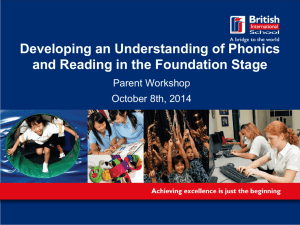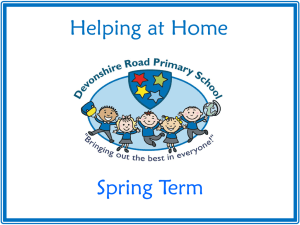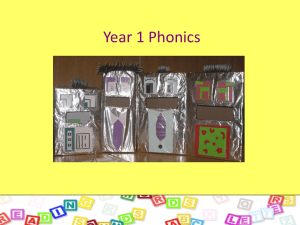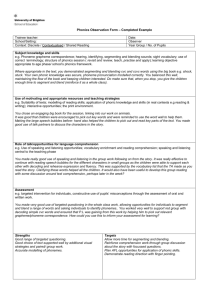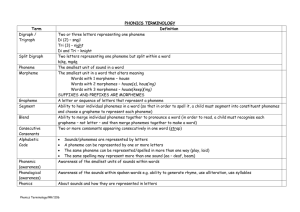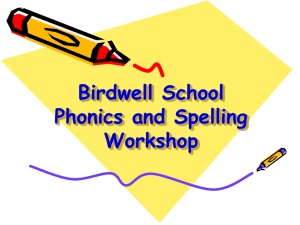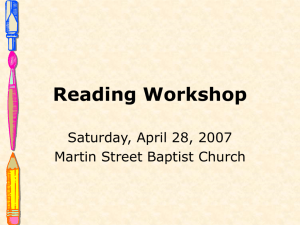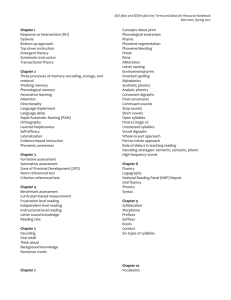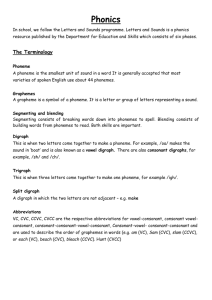Reading at home.
advertisement
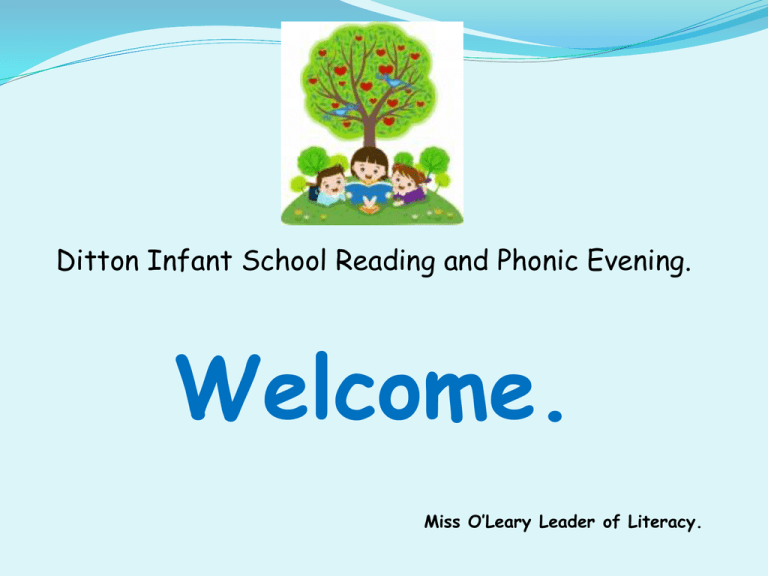
Ditton Infant School Reading and Phonic Evening. Welcome. Miss O’Leary Leader of Literacy. Aims of the evening. To share how reading is taught at Ditton Infant School. To look at the role of phonics. To give practical ideas and strategies for supporting children with reading at home. How do the children at Ditton Infant School feel about reading? The Ditton Infant School reading missions. To enable children to foster a love of reading and books. To teach children to be successful, confident readers. To encourage the children at our School to be “Readers for life.” Teaching children to become confident readers. Decoding words. Phonics. Comprehension. Understanding what you have read – guided reading. Why teach children phonics? To help children to identify sounds in words to blend together for reading. To help children to select the correct sounds to spell words. Year 1 phonic test. Takes place at the end of Year 1. All schools must administer the test in the same week. The check is administered 1:1 with a teacher and child. The results of the test are used to regulate the teaching of phonics in schools across the country and ensure schools are teaching children what they need to know. Practicing in school. We have started testing children in a similar way. Keep it fun, no pressure! Some key vocabulary. Phoneme – single unit of sound. Grapheme – the written phoneme. Digraph – a phoneme containing 2 letters – paint. Trigraph – a phoneme containing 3 letters – night. How can you help with phonics at home? Each class will send home information about what the children have been learning in phonics that week. New phonemes/ graphemes to use in reading and writing. New tricky words to learn to read on sight. New tricky words to learn to write and spell correctly. Teaching new phonemes/ graphemes. Introduce the grapheme and its phoneme. How many words can you think of which have this phoneme in. “Phoneme talk” the words to spell them. Tricky words. Flash cards. Encourage children to write their own flash cards. Write using a range of tools on a range of surfaces – not just pencil and paper. Take photos of what they have done or send examples into schools for the children to share with their class. Timers! Make it a competition or a challenge. Useful websites. Practicing phonics at home. Make it fun! Hide the learning in a game. Play together. Add rewards/ incentives – stickers work well with most children. Short, sharp, regular sessions. Reading at Ditton Infant School . We teach children the skills needed for understanding and enjoying reading through guided reading sessions. Groups sessions with children with similar reading needs. Offer a range of reading related activities. Appropriately levelled books. (95% accuracy) Books chosen to teach a certain reading skill. Children who are not reading with the teacher or LA are carrying our other independent reading activities. Reading at home. Children will be able to take 2 reading books home in their book bag. One book will be banded at the appropriate level for the children to read to you. One book of their choice. Ideas for reading at home. Reading is not just about books! Kindle children’s books. Ebooks available online. Road signs. Comics. TV guide. Follow a recipe together and cook something yummy! Remember. It is vital that children enjoy reading in order for them to truly be successful. Make reading at home a positive and fun experience. Readers for life. Any questions?
